Hi, Readers.
Today I would like to share a quick tip of Business Central, how to quickly recreate the launch.json file and app.json file in VS Code.
When you start a new AL project, two JSON files, the app.json file and the launch.json file are generated automatically. The app.json file contains information about the extension that you’re building, such as publisher information and specifies the minimum version of base application objects that the extension is built on. Often, the app.json file is referred as the manifest.

The launch.json file contains information about the server that the extension launches on.

You can find more details about JSON Files in MS Learn (Docs).
So, the launch.json file and the app.json file are automatically generated by the AL Language extension when you create a new app in VS Code.
AL Go! command:

But when you have already created extension, or accidentally deleted the launch.json or app.json file, how do you recreate it?
Generally, you might create two files manually and copy them from somewhere else (another project). Or recreate a new extension.
In fact, there is an easier way to quickly recreate. Let’s see more details.
Launch.json file:
When there is no launch.json file in your extension, choose Run and Debug icon.
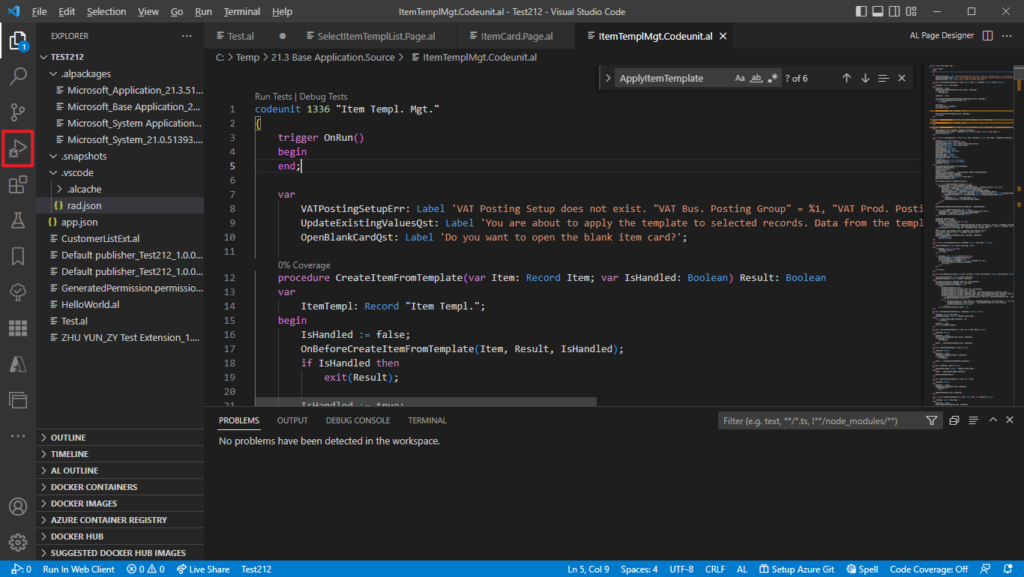
Then, choose create a launch.json file
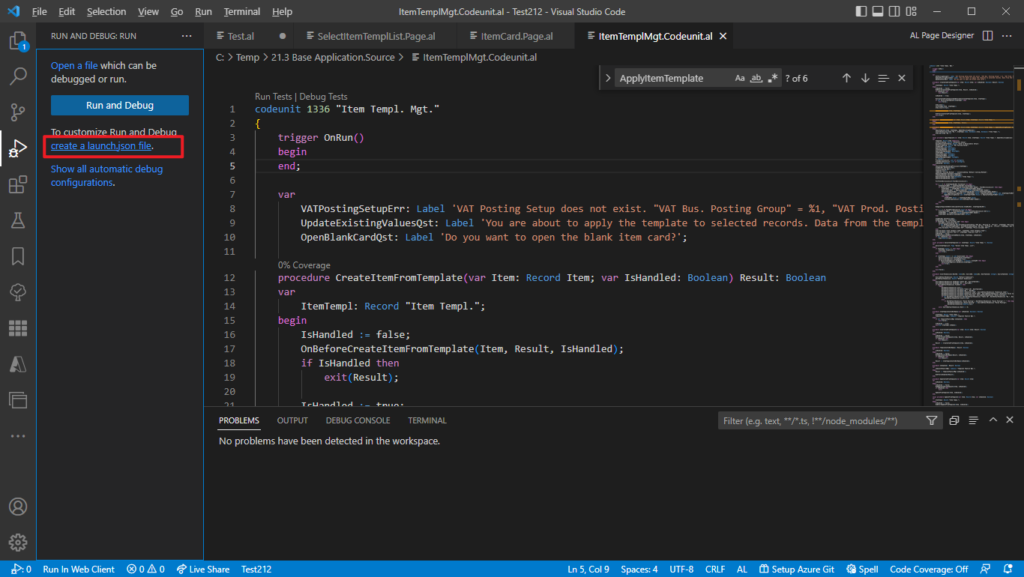
Select AL Language extension.
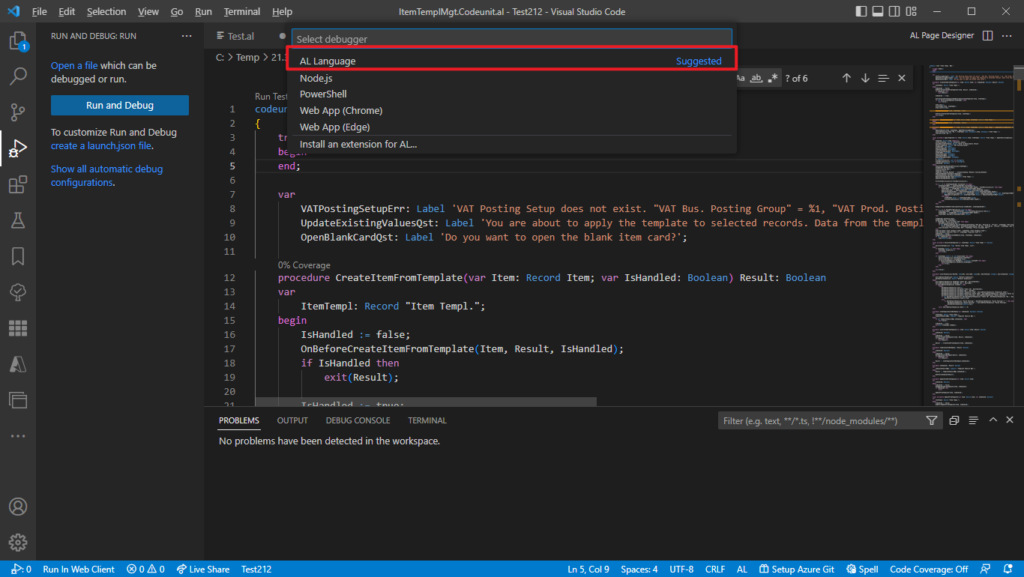
Then you can select the server type (cloud sandbox or your own server), just like when creating a new extension.
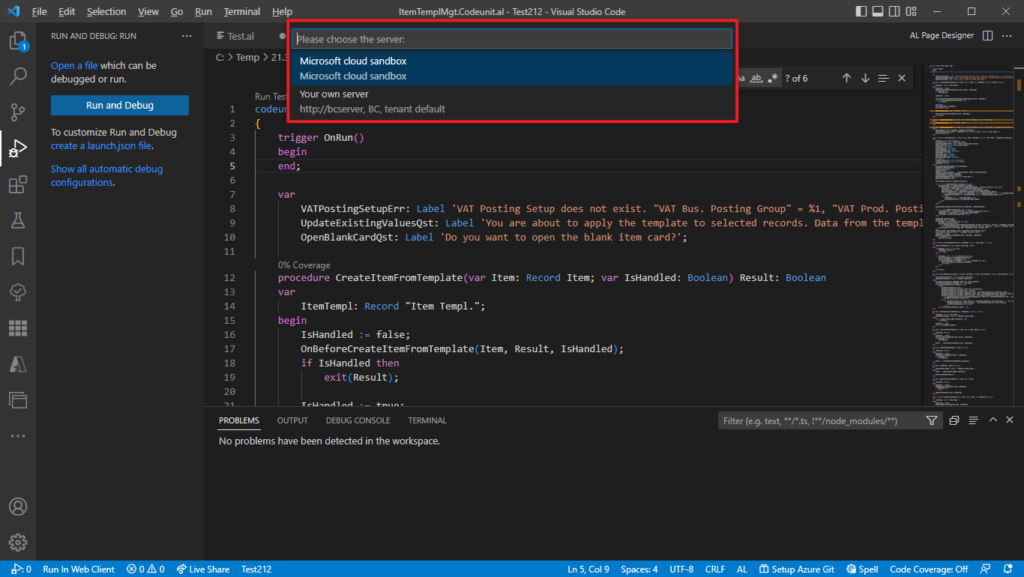
After selecting any one, the Launch.json file will be regenerated.
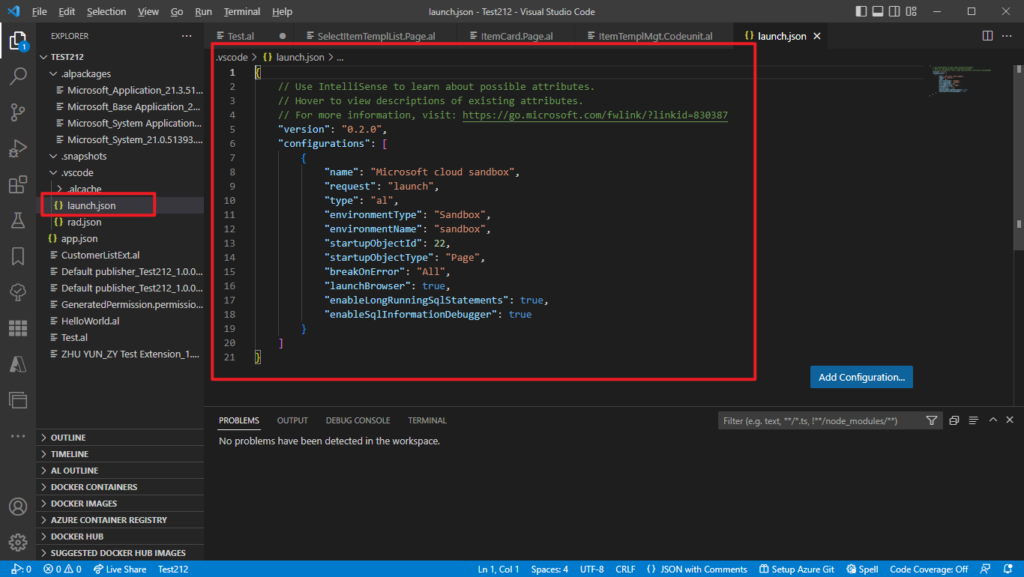
PS: Support for global and workspace launch configuration (No launch.json file is required)
Test Video:
App.json file:
When there is no app.json file in your extension, you can use the AL: Generate manifest command to regenerated the app.json file.
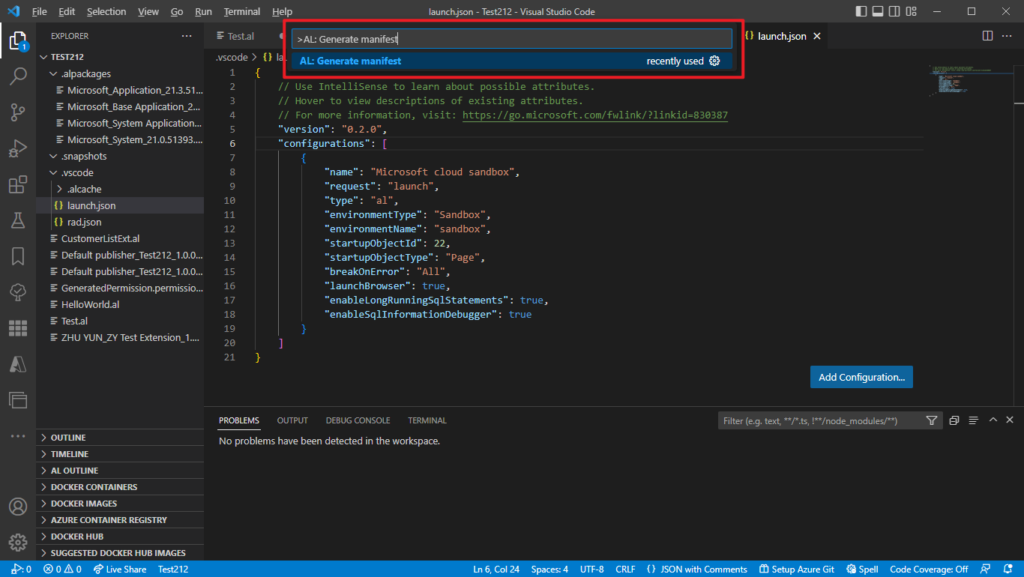
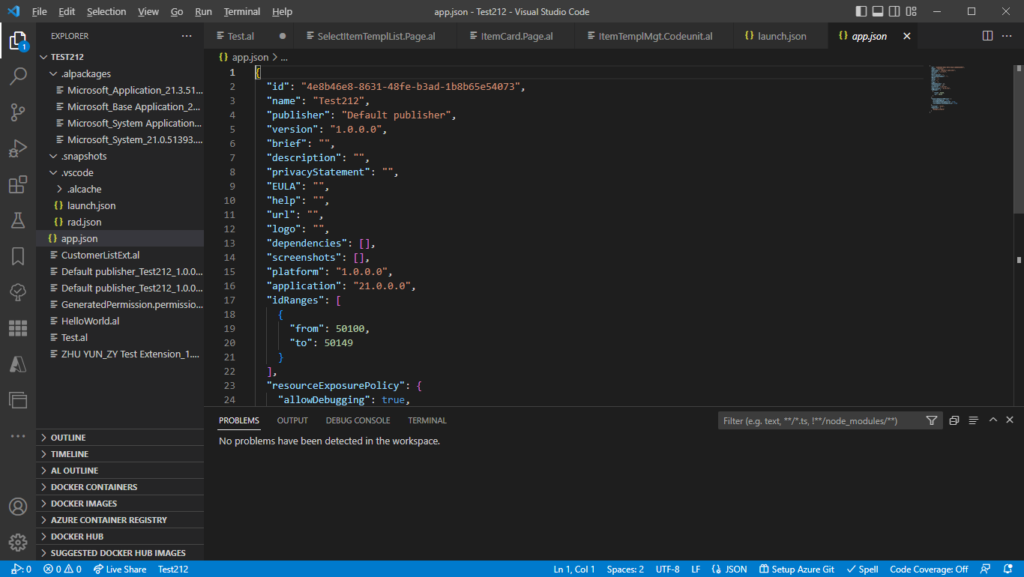
Please note that regenerating the app.json file will change the app id as well.
The id, also known as the app ID. This is a GUID which is auto-generated when the project is created. The app ID is also bound to how tables are named in Business Central and how the identity of an application is computed. Changing the app ID may have severe consequences, such as the app not functioning properly, or data not being available.
More details: App Identity
Test Video:
Give it a try!!!😁
END
Hope this will help.
Thanks for reading.
ZHU

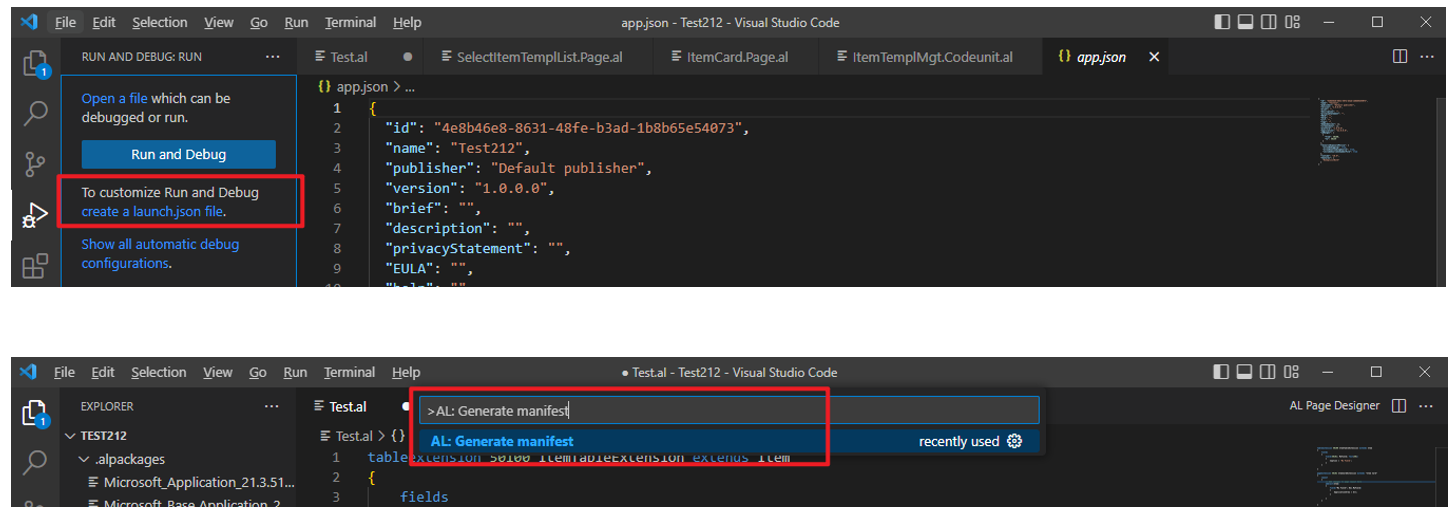


コメント